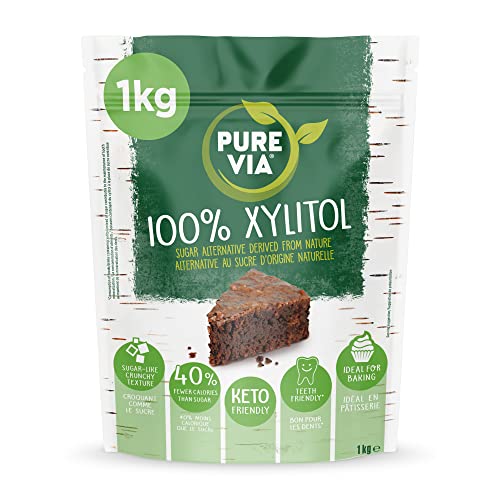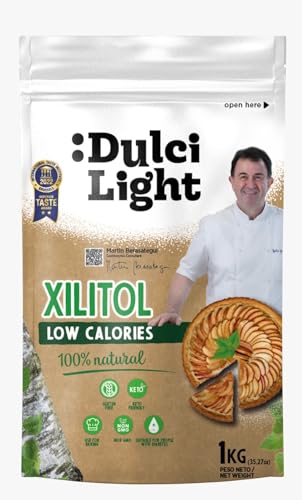What is Xylitol and How Does It Work?
Understanding Xylitol
Xylitol is a sugar alcohol that is naturally found in small amounts in various fruits and vegetables, making it a popular alternative sweetener. It offers sweetness similar to sugar but contains fewer calories, which immediately catches the eye of those looking to reduce caloric intake without sacrificing flavour. Xylitol works by interacting with enzymes in the body and has a lower glycemic index compared to traditional sugar, meaning it impacts blood sugar levels less dramatically. This can be particularly beneficial for people monitoring their carbohydrate intake.
How It Functions in the Body
When xylitol is consumed, it is absorbed in the gut and metabolised by the liver, which means it doesn’t cause spikes in insulin secretion, unlike sugar. This creates a more stable blood sugar level, promoting sustained energy rather than the quick rise and crash often associated with sugary treats. Additionally, xylitol has been shown to help inhibit the growth of bacteria that convert sugar into acid, contributing to better oral health.
Xylitol vs. Sugar: The Sweet Science Explained
Caloric Comparison
On a caloric basis, xylitol has about 40% fewer calories than traditional sugar, providing a sweeter taste with less caloric contribution. This makes it an appealing choice for those looking to cut down calories while still enjoying sweetness in their beverages and foods. For example, if you usually enjoy a spoonful of sugar in your morning coffee, substituting with xylitol can reduce your caloric intake significantly over time.
Impact on Blood Sugar Levels
When considering xylitol versus sugar, one of the standout features is their differing effects on blood sugar. Xylitol has a very low glycemic index rating, whereas sugar can cause rapid increases in blood glucose levels. This difference can be crucial for those with diabetes or anyone trying to maintain stable energy levels throughout the day. Choosing xylitol in place of sugar may help in managing weight and propensity for energy crashes.
Benefits of Xylitol: Why It Might Be Right for You
Dental Health Benefits
A big draw of xylitol is its positive impact on dental health. It has been shown to reduce the growth of bacteria responsible for cavities and can even help in the remineralisation of teeth. If maintaining oral hygiene is essential to you, incorporating xylitol could be a step in the right direction—imagine enjoying sweets that not only satisfy your cravings but contribute to your dental wellbeing.
Gut Health
Xylitol may also promote a healthy gut environment. Unlike sugar, which can feed bad bacteria and lead to digestive issues, xylitol can support the growth of beneficial bacteria. This can potentially improve digestion and overall gut health, allowing you to feel more balanced after meals. If you often struggle with digestive discomfort, considering xylitol as a sweetener might be beneficial.
How to Incorporate Xylitol into Your Diet
Simple Substitutions
Integrating xylitol into your diet is straightforward. You can substitute sugar with xylitol in a 1:1 ratio in most recipes, whether baking, cooking, or sweetening beverages. For instance, when making a fruit smoothie, simply replace the usual sugar with xylitol and you’ll hardly notice the difference in taste while enjoying a healthier option.
Be Mindful of Portions
While xylitol does have benefits, it’s wise to use it in moderation, especially if you are introducing it to your diet for the first time. Excessive consumption can lead to gastrointestinal discomfort for some individuals. Start with smaller amounts to gauge how your body reacts, and as you adjust, feel free to increase your intake gradually.
Choosing the Best Xylitol Products: Our Top Recommendations
What to Look For
When selecting xylitol products, quality is key. We recommend looking for xylitol that is sourced from natural origins, as some brands may mix xylitol with other less desirable ingredients. Ensuring that what you’re buying is pure xylitol will guarantee that you benefit from its full range of advantages.
Best Formats of Xylitol
Xylitol is available in various formats, including granulated sugar, powder, and even in chewing gum. For versatility, granulated xylitol is the most commonly used form, ideal for both cooking and baking, while powdered xylitol can be better suited for dusting desserts or when a finer consistency is desired. Choosing the right format depends on how you plan to use it, but having an option available in your pantry can make cooking even more enjoyable.




















